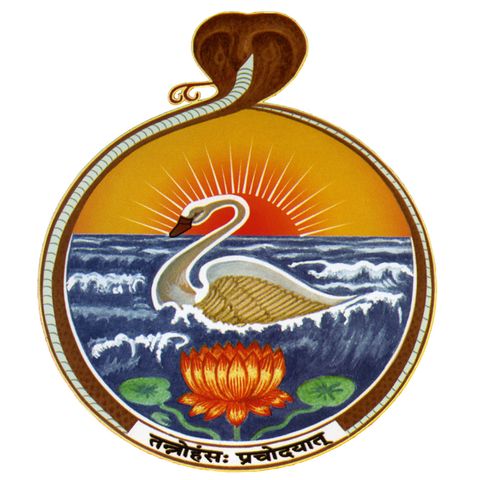Dharma and Moksha: Solving the Problems of Success in the IT Age I | Swami Tattwamayananda

Download and listen anywhere
Download your favorite episodes and enjoy them, wherever you are! Sign up or log in now to access offline listening.
Description
This lecture was given on March 11, 2018 by Swami Tattwamayananda at the Vedanta Society of Northern California. -Evolution in samskrti (culture) and pariskrti (civilization) are not always linked. The...
show more-Evolution in samskrti (culture) and pariskrti (civilization) are not always linked. The culture of science and technology can be a cultural suicide.
-We may lose the power of mananam (deep thought) unless we learn to wield science and technology as a tool in our hands rather than as slaves.
-Since information technology quickly changes, it narrows the focus towards only short-term goals for success and happiness. Psychological problems cannot be solved at the mental level. We can get only temporary relief and we constantly have to remain active.
-The total negligence of the classics is a real problem for education because our attitudes and emotions don’t get refined.
-Four purusarthas (dharma, kama, artha, moksha) are given in Hinduism. The pursuit of kama and artha should be regulated by dharma.
-Mental health is a state of natural inner blissfulness: krta-krtyata (I have done what I ought to have done) and krtarthita (I have attained what I was trying to attain).
-Raja rishis have the efficiency and dynamism of a king but inner serenity of a sage.
-Dharma is the value that preserves tradition and culture. It supports, sustains, keeps in balance, and regulates. It teaches the need for protecting the environment.
-It is a serious problem when you have no worldly problem but you still feel a vacuum.
-When a person has practiced dharma while pursuing worldly success, they may begin to pursue a transcendental value with a strong sense of sanctity and sacredness.
-Intense spiritual seeker can meditate, read scriptures, and pursue the realization of God. Otherwise, they can found a trust to do something for others.
-Wisdom is the ability to make proper use of what we know, such as the tools of science and technology and avoid improper use of this power.
-Success is needed but we need to know the limitations of success.
-The three boons that Nachiketa asks for in the Katha Upanishad represent a person’s evolution from the desire for worldly and heavenly pleasures to what is beyond life and death.
-His third question of what exists beyond death is what takes us into the realm of culture.
-If life ends with death, then that leaves a terrible vacuum.
-If you know that you will be reborn with your mental tendencies, then material wealth will be less important than acquiring love, broadmindedness, compassion, unselfishness – a wealth that never fades.
-When you have material success but also live the values of dharma and moksha, then you obtain real success.
Information
| Author | Vedanta Society, San Francisco |
| Organization | Vedanta Society, San Francisco |
| Website | - |
| Tags |
Copyright 2024 - Spreaker Inc. an iHeartMedia Company

Comments